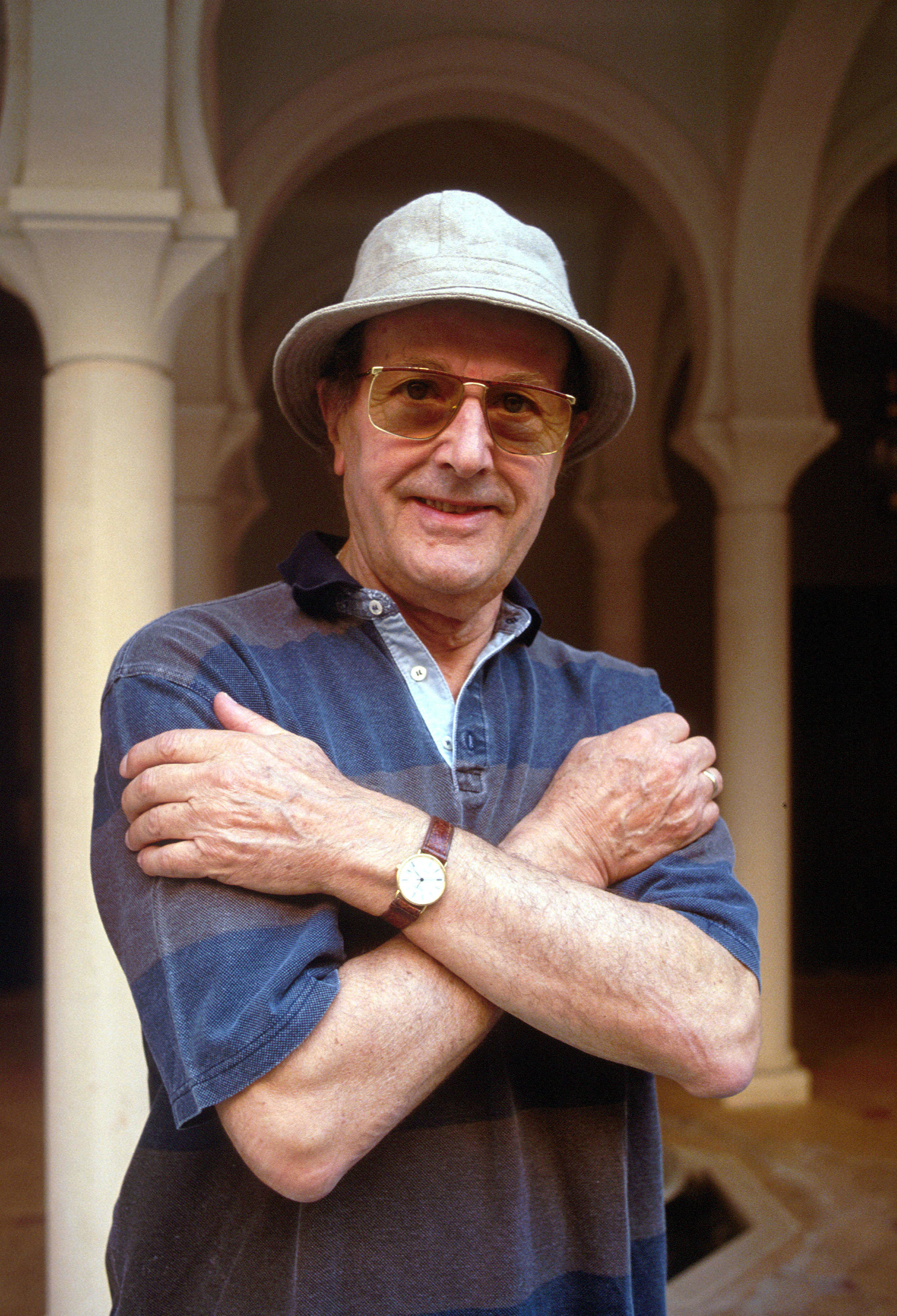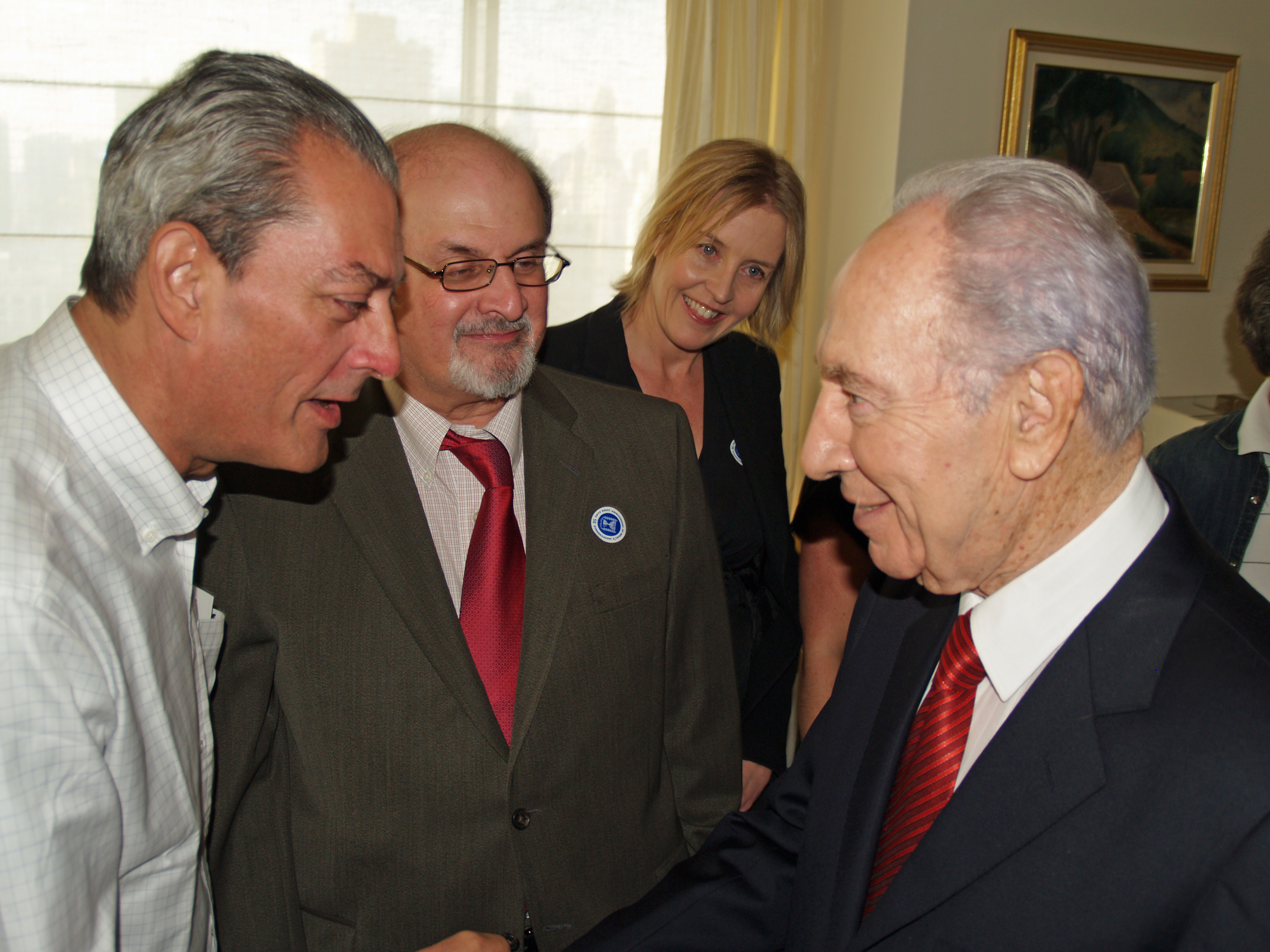|
Paulo Branco
Paulo Branco (born 3 June 1950) is a Portuguese film producer. Life and career Paulo Branco was born in Lisbon, and attended the undergraduate program in chemical engineering at the Instituto Superior Técnico but he did not graduate. He started to work at the Olympic Cinema, in Paris, with Frédéric Mitterrand, in 1974, for two years, and started his career as a producer in 1979 between Paris and Lisbon. So far, he has produced over 300 films and has worked with film directors such as David Cronenberg, Jerzy Skolimowski, Wim Wenders, Chantal Akerman, Alain Tanner, Werner Schroeter, André Téchiné, Andrzej Zulawski, Christophe Honoré, Olivier Assayas, Sharunas Bartas, Cédric Kahn, Lucas Belvaux, Valéria Bruni-Tedeschi, João César Monteiro, Paul Auster, Philippe Garrel, Mathieu Amalric… among many others. His career has particularly been branded with an intense collaboration, during more than 20 years, with Raúl Ruiz ('' Time Regained'', ''Three Lives and Only On ... [...More Info...] [...Related Items...] OR: [Wikipedia] [Google] [Baidu] |
Lisbon
Lisbon (; pt, Lisboa ) is the capital and largest city of Portugal, with an estimated population of 544,851 within its administrative limits in an area of 100.05 km2. Grande Lisboa, Lisbon's urban area extends beyond the city's administrative limits with a population of around 2.7 million people, being the List of urban areas of the European Union, 11th-most populous urban area in the European Union.Demographia: World Urban Areas - demographia.com, 06.2021 About 3 million people live in the Lisbon metropolitan area, making it the third largest metropolitan area in the Iberian Peninsula, after Madrid and Barcelona. It represents approximately 27% of the country's population. [...More Info...] [...Related Items...] OR: [Wikipedia] [Google] [Baidu] |
Francisca
The francisca (or francesca) is a throwing axe used as a weapon during the Early Middle Ages by the Franks, among whom it was a characteristic national weapon at the time of the Merovingians from about 500 to 750 and is known to have been used during the reign of Charlemagne (768–814). Although generally associated with the Franks, it was also used by other Germanic peoples of the period, including the Anglo-Saxons; several examples have been found in England.Underwood, Richard (1999). ''Anglo-Saxon Weapons and Warfare''. p.35-37. Tempus Publishing. . Etymology The term ''francisca'' first appeared in the book '' Etymologiarum sive originum, libri XVIII'' by Isidore of Seville (c. 560–636) as a name used in Hispania to refer to these weapons "because of their use by the Franks". The historian Gregory of Tours (c. 538–594) in his ''History of the Franks'' uses two Latin terms for the Frankish axe: ''securis'' and ''bipennis''. The régime of Vichy France used the image ... [...More Info...] [...Related Items...] OR: [Wikipedia] [Google] [Baidu] |
Manoel De Oliveira
Manoel Cândido Pinto de Oliveira (; 11 December 1908 – 2 April 2015) was a Portuguese film director and screenwriter born in Cedofeita, Porto. He first began making films in 1927, when he and some friends attempted to make a film about World War I. In 1931 he completed his first film '' Douro, Faina Fluvial'', a documentary about his home city Porto made in the city symphony genre. He made his feature film debut in 1942 with ''Aniki-Bóbó'' and continued to make shorts and documentaries for the next 30 years, gaining a minimal amount of recognition without being considered a major world film director. In 1971, Oliveira directed his second feature narrative film, '' Past and Present'', a social satire that both set the standard for his film career afterwards and gained him recognition in the global film community. He continued making films of growing ambition throughout the 1970s and 1980s, gaining critical acclaim and numerous awards. Beginning in the late 1980s he was ... [...More Info...] [...Related Items...] OR: [Wikipedia] [Google] [Baidu] |
Three Lives And Only One Death
''Three Lives and Only One Death'' (french: Trois vies et une seule mort) is a 1996 French film directed by Chilean filmmaker Raúl Ruiz. It was entered into the 1996 Cannes Film Festival, and was the penultimate film to star Marcello Mastroianni, before his death in 1996. Plot Pierre Bellemare, a French radio personality appears to recount four strange, seemingly non-coexisting, tales that make up the complex narrative structure of ''Three Lives and Only One Death''. In the first tale we are introduced to Andre Parisi, a family man who has woken up with a terrible headache. Andre leaves to a local cafe where he meets one of the multiple enigmatic central characters, Matteo Strano (Marcello Mastroianni). Matteo offers Andre champagne and 1000 francs to listen to his story. Prior to the scene of Matteo's own storytelling, he reveals he was once married to Andre's wife. Matteo recounts the day he went out, on a whim, and rented out an apartment. Matteo insists this apartment is inha ... [...More Info...] [...Related Items...] OR: [Wikipedia] [Google] [Baidu] |
Time Regained (film)
''Time Regained'' (french: Le Temps retrouvé) is a 1999 French drama film directed by the Chilean filmmaker Raúl Ruiz (director), Raúl Ruiz. It is an adaptation of the 1927 final volume of the seven-volume series ''In Search of Lost Time'' by Marcel Proust. The plot is about the anonymous narrator of ''In Search of Lost Time'' who reflects on his past experiences while lying on his deathbed. The choice to develop the last volume of ''In Search of Lost Time'' allows the film to refer to the entire novel. For example, the film shows an episode of the first volume, ''Swann's Way'' (1913), usually referred to as "the lady in pink," as a flashback of ''Time Regained''. The film was entered into the 1999 Cannes Film Festival. Plot Much of the film is composed of flashbacks of Marcel's memories of the past. One leads to another in what Proust called involuntary memory triggered by sights, sounds, and smells from the present. The movie starts off with Marcel Proust on his deathbed. H ... [...More Info...] [...Related Items...] OR: [Wikipedia] [Google] [Baidu] |
Raúl Ruiz (director)
Raúl Ernesto Ruiz Pino (french: Raoul Ruiz; 25 July 1941 – 19 August 2011) was an experimental Chilean filmmaker, writer and teacher whose work is best known in France. He directed more than 100 films. Biography The son of a ship's captain and a schoolteacher in southern Chile, Raúl Ruiz abandoned his university studies in theology and law to write 100 plays with the support of a Rockefeller Foundation grant. He went on to learn his craft working in Chilean and Mexican television and studying at film school in Argentina (1964). Back in Chile, he made his feature debut ''Three Sad Tigers'' (1968), sharing the Golden Leopard at the 1969 Locarno Film Festival. According to Ruiz in a 1991 interview, ''Three Sad Tigers'' "is a film without a story, it is the reverse of a story. Somebody kills somebody. All the elements of a story are there but they are used like a landscape, and the landscape is used like story."Klonarides, Carole Ann http://bombsite.com/issues/34/articles/1391, '' ... [...More Info...] [...Related Items...] OR: [Wikipedia] [Google] [Baidu] |
Mathieu Amalric
Mathieu Amalric (; born 25 October 1965) is a French actor and filmmaker. He is best known internationally for his roles in the James Bond film ''Quantum of Solace'', in which he played the lead villain, Steven Spielberg's ''Munich (2005 film), Munich'', Wes Anderson's ''The Grand Budapest Hotel'' and ''The French Dispatch'', and for his lead performance in ''The Diving Bell and the Butterfly (film), The Diving Bell and the Butterfly'', for which he drew critical acclaim. He has also won several César Awards and the Lumières Award. Early life Amalric was born on 25 October 1965 in Neuilly-sur-Seine, a suburb of Paris, the son of journalists Nicole Zand, a literary critic for ''Le Monde'', and Jacques Amalric, who worked as a foreign affairs editor for ''Le Monde'' and ''Libération''. Amalric's father was French, while his mother was born in Poland, to Jewish parents, and moved to France at the outbreak of World War II. Career Amalric first gained fame in the film ''My Sex L ... [...More Info...] [...Related Items...] OR: [Wikipedia] [Google] [Baidu] |
Philippe Garrel
Philippe Garrel (; born 6 April 1948) is a French director, cinematographer, screenwriter, film editor, and producer, associated with the French New Wave movement. His films have won him awards at Cannes Film Festival and Venice Film Festival. Early life Philippe Garrel was born in Boulogne-Billancourt in 1948, the son of actor Maurice Garrel and his wife. His brother, Thierry Garrel, is a producer. The younger Garrel became interested in film and started his career early, influenced by the new work of Jean-Luc Godard and François Truffaut. At the age of 16, Garrel wrote and directed his first film, ''Les Enfants désaccordés,'' in 1964. Awards In 1982, Garrel won the Prix Jean Vigo for the film ''L'Enfant secret''. He won Perspectives du Cinéma Award at the Cannes Film Festival in 1984 for his 1983 film ''Liberté, la nuit''. Over a ten-year period, Garrel enjoyed a good run of critical recognition at the Venice Film Festival. In 1991, he won a Silver Lion for his film ''J ... [...More Info...] [...Related Items...] OR: [Wikipedia] [Google] [Baidu] |
Paul Auster
Paul Benjamin Auster (born February 3, 1947) is an American writer and film director. His notable works include ''The New York Trilogy'' (1987), ''Moon Palace'' (1989), ''The Music of Chance'' (1990), ''The Book of Illusions'' (2002), ''The Brooklyn Follies'' (2005), ''Invisible (Auster novel), Invisible'' (2009), ''Sunset Park (novel), Sunset Park'' (2010), ''Winter Journal'' (2012), and ''4 3 2 1 (novel), 4 3 2 1'' (2017). His books have been translated into more than forty languages. Early life Paul Auster was born in Newark, New Jersey,Freeman, John"At home with Siri and Paul", ''The Jerusalem Post'', April 3, 2008. Retrieved September 19, 2008. "Like so many people in New York, both of them are spiritual refugees of a sort. Auster hails from Newark, New Jersey, and Hustvedt from Minnesota, where she was raised the daughter of a professor, among a clan of very tall siblings." to Jewish middle-class parents of Poles, Polish descent, Queenie (née Bogat) and Samuel Auster. He i ... [...More Info...] [...Related Items...] OR: [Wikipedia] [Google] [Baidu] |
João César Monteiro
João César Monteiro Santos (2 February 1939, in Figueira da Foz – 3 February 2003, in Lisbon) was a Portuguese film director, actor, writer and film critic. Life and career João César Monteiro was born into a family with anti-clerical and anti-fascist ideals. His family moved to Lisbon when Monteiro was 15 years old to enable him to continue his studies. In 1963, with a grant from the Calouste Gulbenkian Foundation, Monteiro traveled to Great Britain to study at the London Film School (known then as the London School of Film Technique). In 1965 in Portugal, he began work on his first film, '' Quem Espera por Sapatos de Defunto Morre Descalço'' (Who Waits for the Deceased's Shoes Dies Barefoot), which would not be finished for five years due to financial problems. At the same time, he made the short documentary "Sophia de Mello Breyner Andresen", about the Portuguese poet. Monteiro also wrote film criticism for periodicals like ''Imagem'', ''Diário de Lisboa'' and ''O S ... [...More Info...] [...Related Items...] OR: [Wikipedia] [Google] [Baidu] |



